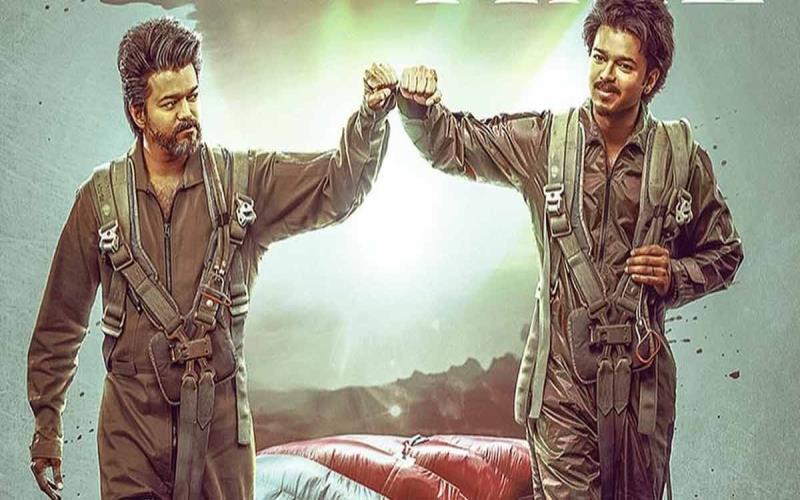The Greatest of All Time Movie Review: An Inspiring Journey Through Triumph, Adversity, and Unmatched Legacy
Introduction to The Greatest of All Time
The Greatest of All Time is a sports drama that transcends the typical genre by delivering a story about passion, failure, redemption, and the relentless pursuit of greatness. Directed by Raj Mehta, the film centers around the life of Aryan Verma (played by Vijay Deverakonda), a former sports prodigy struggling to reclaim his legacy after a tragic fall from grace. The movie explores the highs and lows of competitive sports, the personal sacrifices that come with it, and the emotional toll of living up to lofty expectations.
With a combination of heartfelt performances, gripping action sequences, and inspirational moments, The Greatest of All Time provides not just entertainment but also a reflective commentary on ambition and personal growth. The film’s central message—that true greatness lies in resilience and self-belief—resonates with audiences beyond the world of sports.
Plot Overview and Storyline
The movie follows the journey of Aryan Verma, a celebrated tennis champion whose career plummets after an injury derails his rise to global fame. The story begins with Aryan in the aftermath of his downfall, grappling with physical pain, emotional turmoil, and public scrutiny. Once hailed as a prodigy, Aryan now finds himself sidelined, battling the burden of expectations and struggling to find meaning in his life.
As Aryan attempts to rebuild his career, he faces opposition not only from younger, ambitious players but also from his own inner demons. Along the way, he reconnects with his estranged coach Kabir Mehta (played by Pankaj Tripathi), a no-nonsense mentor who offers tough love and guidance. Aryan’s strained relationship with his father, who never approved of his passion for tennis, adds emotional complexity to the story, deepening the stakes.
The narrative focuses on Aryan’s grueling comeback journey, marked by intense training, self-doubt, and moments of profound self-reflection. His path to redemption is not just about reclaiming his title—it’s about rediscovering his love for the game and finding peace within himself. The film builds to a thrilling climax, where Aryan’s journey culminates in an epic showdown on the court that symbolizes not just a match but a personal victory.
Character Performances and Emotional Depth
Vijay Deverakonda’s portrayal of Aryan Verma is the emotional core of the film. Known for his versatility, Vijay delivers a performance that captures the vulnerability, frustration, and determination of a man trying to reclaim his greatness. His transformation—both physical and emotional—is compelling, making Aryan’s journey relatable and inspiring. Vijay’s ability to convey subtle emotions during moments of introspection adds depth to his character, ensuring that Aryan’s struggles feel authentic.
Pankaj Tripathi, as Kabir Mehta, delivers a nuanced performance that brings both humor and gravitas to the narrative. His portrayal of a mentor who believes in tough love adds emotional weight to Aryan’s journey. Kabir’s role extends beyond that of a coach—he becomes a father figure and confidant, guiding Aryan through his darkest moments. The chemistry between Vijay and Pankaj adds warmth to the film, making their scenes together both impactful and memorable.
The supporting cast, including Mrunal Thakur as Aryan’s love interest and Saurabh Shukla as the head of the tennis federation, adds depth to the narrative. Mrunal’s character provides moments of emotional respite, offering Aryan a glimpse of life beyond the court. The film’s well-developed characters ensure that the story remains engaging, with each role adding value to Aryan’s transformation.
Direction, Cinematography, and Visual Appeal
Raj Mehta’s direction is seamless, balancing emotional storytelling with intense sports action. His ability to portray both the physical and emotional aspects of competitive sports makes the film engaging. Mehta’s focus on character development ensures that the audience remains invested in Aryan’s journey, rooting for him not just as an athlete but as a human being seeking redemption.
The cinematography by Ravi K. Chandran elevates the film’s visual appeal. The tennis matches are captured with dynamic camera work, making the audience feel every serve, rally, and match point. Close-ups of Aryan during key moments allow the audience to connect with his emotions, creating a sense of intimacy. The film also makes excellent use of slow-motion sequences during critical points, enhancing the intensity of the action.
The training montages are visually striking, portraying Aryan’s physical and emotional transformation with finesse. The contrast between the bright, bustling tennis courts and the quieter moments of reflection in Aryan’s life creates a visual metaphor for his internal conflict. The cinematography ensures that the audience is fully immersed in Aryan’s world, making his victories and defeats feel personal.
Music and Sound Design
The music composed by Amit Trivedi complements the film’s emotional and narrative arcs. The soundtrack features motivational tracks for the training sequences and soulful melodies for the quieter moments, creating a balance between intensity and introspection. Each song is carefully placed within the narrative, enhancing the emotional impact of key scenes.
The background score heightens the tension during the tennis matches, adding to the excitement and drama. The sound design captures the atmosphere of live sports, from the sounds of sneakers on the court to the thunderous applause of spectators. These auditory elements add authenticity to the film, ensuring that the audience feels fully engaged in the action.
Strengths and Weaknesses
The Greatest of All Time excels in its character development, emotional storytelling, and visual presentation. The performances, especially by Vijay Deverakonda and Pankaj Tripathi, elevate the film, making Aryan’s journey both engaging and inspiring. The narrative’s focus on resilience, redemption, and the pursuit of passion resonates deeply with audiences, offering a story that is both entertaining and meaningful.
However, some viewers might find the pacing slow during the film’s first half, as the narrative takes its time to establish Aryan’s emotional struggles. While these moments add depth to the character, a few scenes could have been trimmed to maintain a tighter flow. Additionally, the predictability of the climax—a hallmark of sports dramas—might feel familiar to seasoned viewers. Despite these minor flaws, the film’s emotional depth and strong performances make it a compelling watch.
Audience Reception and Critical Response
The Greatest of All Time has received positive reviews from critics and audiences, with many praising the film’s performances, direction, and emotional storytelling. Viewers have appreciated Vijay Deverakonda’s portrayal of Aryan Verma, noting his ability to bring authenticity and depth to the role. The chemistry between Vijay and Pankaj Tripathi has also been widely appreciated, adding emotional weight to the narrative.
Critics have lauded Raj Mehta’s direction for balancing sports action with personal drama, making the film accessible to both sports enthusiasts and general audiences. The cinematography and music have been highlighted as standout elements, enhancing the film’s overall impact. While some viewers mentioned the predictable narrative, most agreed that the film’s emotional resonance and engaging performances make it a must-watch.
Conclusion: Why You Should Watch The Greatest of All Time
The Greatest of All Time is a powerful sports drama that offers more than just thrilling matches—it presents a story about resilience, redemption, and personal growth. With engaging performances, stunning visuals, and a meaningful narrative, the film provides a cinematic experience that is both entertaining and inspiring. Aryan Verma’s journey serves as a reminder that greatness lies not in perfection but in the ability to rise after every fall.
If you enjoy films that blend sports action with emotional depth, The Greatest of All Time is a must-watch. The film’s exploration of passion, failure, and self-discovery ensures that it leaves a lasting impact, making it a memorable cinematic experience.


